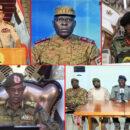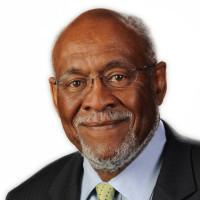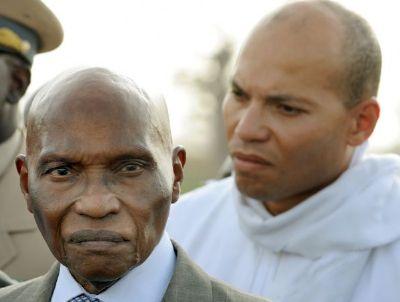Forgotten Darfur: Old Tactics and New Players – by Claudio Gramizzi and Jérí´me Tubiana – NEW REPORT
Available for download at http://smallarmssurveysudan.org/pdfs/HSBA-SWP-28-Forgotten-Darfur.pdf
Amid claims of declining violence and wider regional transformations, the Darfur conflict has all but vanished from the international agenda since 2010. Virtually unnoticed by the international community, the conflict has moved into a new phase, in which the Government of Sudan has shifted away from using Arab proxy militias only to rely on newly formed (and newly armed) non-Arab proxies. “˜Forgotten Darfur’ documents how this development has fundamentally changed the ethnic map of eastern Darfur, drawing on previously latent tensions between non-Arab groups over land, ethnicity, and local political dominance””and generating some of the most significant ethnically directed violence since the start of the conflict in 2003.
The “˜new’ war in eastern Darfur, which erupted in late 2010 and early 2011, has pitted non-Arab groups against other non-Arabs; specifically, government-backed militias drawn from small, previously marginalized non-Arab groups””including the Bergid, Berti, and Tunjur””deployed against Zaghawa rebel groups and communities.
“˜Forgotten Darfur’ also reports how patterns of arms supplies to Sudanese government forces and proxy militias in Darfur have been almost entirely unimpeded by the international community, including the ineffectual UN arms embargo on Darfur. The Sudan Air Force has continued to move weapons into Darfur with complete impunity; it supported ground attacks with aerial bombardment in all of Darfur’s states during 2011 and in West and North Darfur during 2012, despite the UN Security Council’s prohibition on such offensive aerial operations since 2005.
The report also documents how transformations, regime change, and realignments in Chad, Libya, and South Sudan have not fully removed either the mechanisms of the motives for cross-border flows of arms, personnel, or political support to Darfur’s armed actors. In particular, “˜Forgotten Darfur’ explores relations between rebels and communities in western South Sudan and South Kordofan, and their potential to draw the Darfur conflict into much larger North–South confrontations. Increased linkages between Darfur’s rebel groups and the SPLM-N in South Kordofan, and the overlooked potential for conflict on the Darfur–Bahr al Ghazal border, are also highlighted.
New internal ethnic dynamics in Darfur; ongoing supplies of weapons and other support to all sides; and growing connections to latent and actual conflict in contested parts of South Sudan and South Kordofan””all these factors raise the prospect of a continued, slow-burning war of attrition with armed actors and against civilian communities within Darfur and along new fronts on the region’s southern and eastern boundaries.
Among the report’s key findings:
* Since late 2010, new non-Arab “˜Popular Defence Forces’ have been recruited, trained, and armed by the Sudanese government to push Zaghawa rebel groups and civilian communities out of a wide swathe of eastern Darfur. About 70,000, mostly Zaghawa, individuals had been displaced by mid-2011, leading to a sequence of retaliatory attacks from both sides during mid-2011 and early 2012.
* Weapons and, in particular, newly manufactured ammunition, continue to flow to these proxy forces and to the government forces in Darfur that back them, unimpeded by the wholly ineffective UN embargo on Darfur. While the UN Security Council is yet to authorize the publication of the latest findings of the Panel of Experts established to monitor the embargo, new evidence from South Kordofan indicates that the trend of “˜just-in-time’ international ammunition supplies to SAF identified by the Panel in 2010 appears to be continuing.
* The Darfur conflict continues to be characterized by aerial bombardment in all states of the region, in support of ground operations against rebel forces themselves and, in some cases, deliberately targeting civilian settlements believed to be supportive or identified with rebel forces. This aerial capacity, deployed in violation of Security Council resolutions, is maintained through ongoing international support via Sudanese, Middle Eastern, and Eastern European corporate actors that sustain the military–logistical assets used both to bomb Darfur and to deliver arms.
* SAF in Darfur is the primary source of supply””mainly through battlefield capture””to Darfur rebel groups.
* While the removal of the Muammar Qaddafi regime has ended officially sponsored material support from Libya to JEM and the Sudan Liberation Army-Minni Minawi, rebel groups claim that they moved significant materiel from Libya’s poorly secured southern stockpiles after the fall of the regime.
* Darfur rebels’ involvement in the South Kordofan conflict increased during late 2011 and 2012, with JEM forces in particular ending combat operations in Darfur between mid-2011 until early 2012. This fragile alliance with the SPLM-N is rooted in tribal connections, particularly among the marginalized Masalit groups of Darfur, Western Bahr al Ghazal, and the Nuba Mountains.
* With both the SPLA and the GoSS leadership split over assistance to Darfur rebel groups, the SPLA until late 2011 retained division-level links with the small encampments of Darfur rebels present in Western and Northern Bahr al Ghazal. The presence of Darfuris in Bahr al Ghazal, while not as extensive as has been claimed by the Government of Sudan, has coincided with the largely unreported escalation of military incidents between SAF and the SPLA along the South Darfur–South Sudan border, raising the possibility of significant future conflict in this critically contested area.
“˜Forgotten Darfur’ is the 28th Working Paper from the HSBA. All HSBA publications can be downloaded from www.smallarmssurveysudan.org (please refresh your Internet browser to ensure that the latest updates load).
For interviews related to this publication, please contact Jonah Leff, HSBA Project Coordinator, at [email protected]






